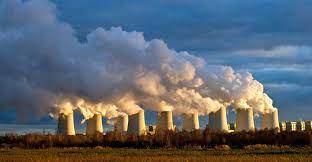Global consumption of coal reached an all-time high in 2024, according to a new report that underscores the persistent gap between clean energy growth and the reality of fossil fuel dependence. Despite record investment and rapid expansion in renewables, greenhouse gas emissions continued to rise, casting doubt on global efforts to meet climate targets.
A record year for the dirtiest fuel
The International Energy Agency (IEA) said total coal use climbed to more than 8.7 billion tonnes last year, driven primarily by surging demand in Asia. China, India, and Indonesia together accounted for over 75% of global consumption, as each country relied on coal to stabilise power supplies and meet industrial demand amid fluctuating natural gas prices.
In contrast, coal use declined modestly across Europe and North America, but those reductions were outweighed by growth elsewhere. The report noted that many developing nations are still expanding coal-fired generation as a cheaper and more reliable alternative, even as they invest in solar, wind, and hydro power.
Emissions rising despite renewables surge
Global renewable energy capacity increased by nearly 50% in 2024 — the fastest rate in history — yet this expansion failed to offset the rise in fossil fuel use. The IEA warned that overall carbon dioxide emissions grew by around 1.3%, marking another setback for global climate ambitions.
Experts attributed the imbalance to strong post-pandemic industrial output and extreme weather patterns that boosted electricity demand. Several Asian economies faced prolonged heatwaves and droughts, reducing hydroelectric output and forcing utilities to burn more coal.
China and India under scrutiny
China, the world’s largest coal consumer, saw record power generation last year as authorities prioritised energy security and economic stability. India’s coal use also increased by over 8%, fuelled by rapid population growth and industrial expansion. Both countries have pledged to peak emissions later this decade but continue to approve new coal projects to avoid power shortages.
Environmental groups criticised these policies, arguing that continued investment in coal infrastructure risks locking nations into high-emission pathways for decades. “The contradiction is stark — renewables are growing exponentially, but coal is not yet in structural decline,” one analyst said.
A warning for climate policy
The findings come ahead of next month’s UN climate summit, where negotiators are expected to face renewed pressure to commit to faster coal phase-outs. The IEA report calls for urgent reforms in energy subsidies, grid modernisation, and carbon pricing to accelerate the global transition.
Without decisive action, the agency warned, the world risks surpassing key temperature thresholds well before mid-century — with severe consequences for both economies and ecosystems.
Newshub Editorial in Global – 22 October 2025




Recent Comments